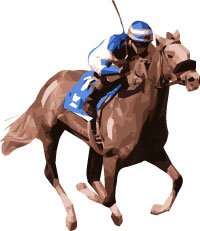As with all sports, there are many nutritional factors to consider for the badminton player. The basics sports nutrition principles will apply, however there are certain sport-specific factors that should be considered.
Characteristics of the Game
A badminton game can go for an extended duration requiring high intensity work as well as high aerobic fitness. The sport is played indoors and is often played in a tournament situation with many games in a week or even in a day. Times of games are not always known in advance, so nutritional organization is a necessity.
Specific Nutrition Issues
Weight Management
Carrying extra weight will affect a player's ability to move freely around the court, and the extra body fat will increase fatigue. A badminton player's diet should be based on low fat, high carbohydrate meals. Ensuring high nutritional value foods will reduce the risk of taking in excess calories, which will be stored as body fat and increase body weight.
Recovery During Tournaments
The main focus of recovery for everyday is to get an athlete well prepared for the next training session or competitive event. The aims are to:
- Replace muscle and liver glycogen stores
- Replace fluid and electrolytes lost in sweat
- Repair the damage caused by the exercise
Recovery is most effective during the first hour after the exercise. This is even more important during a tournament situation when you may have another event in less than eight hours. The fuel which replaces muscle glycogen stores is carbohydrate. These foods will replace the depleted fuel stores which were used during the activity. Protein post-exercise will achieve muscle repair from the damage that the exercise has caused. Rehydration is also an important factor of recovery after a long workout or game.
Hydration
The high intensity of badminton, the popularity of it in hot climates, and the factor of it being an indoor sport, means that hydration is very important. Not only during games, but in training too. Hot climates, high temperatures and humidity will increase sweat rate of an athlete, while playing indoors will reduce evaporative cooling, culminating in greater risk of dehydration if careful attention is not placed on fluid intake. It is important to hydrate before competition and training, as well as taking in enough fluid after exercise to compensate for all fluid losses during activity, which will assist in recovery. See more about hydration for sport.
Main Points
- Maintaining optimal weight will help improve fitness endurance
- Having a snack or meal that contains both good quality carbohydrate and protein, within an hour of activity will achieve optimum recovery.
- Consuming fluids directly after activity will ensure hydration is optimal for the next session.
- Sports drinks, juice, and cordial provide carbohydrate as well as fluid for recovery, they are a great option if appetite is poor.
Related Pages
- The attributes of a great badminton player
- Nutrition for sport
- Hydration for sport
- Athlete nutritional recovery
- Fitness testing for badminton
- Badminton warm-up
- All about fitness testing


 Current Events
Current Events